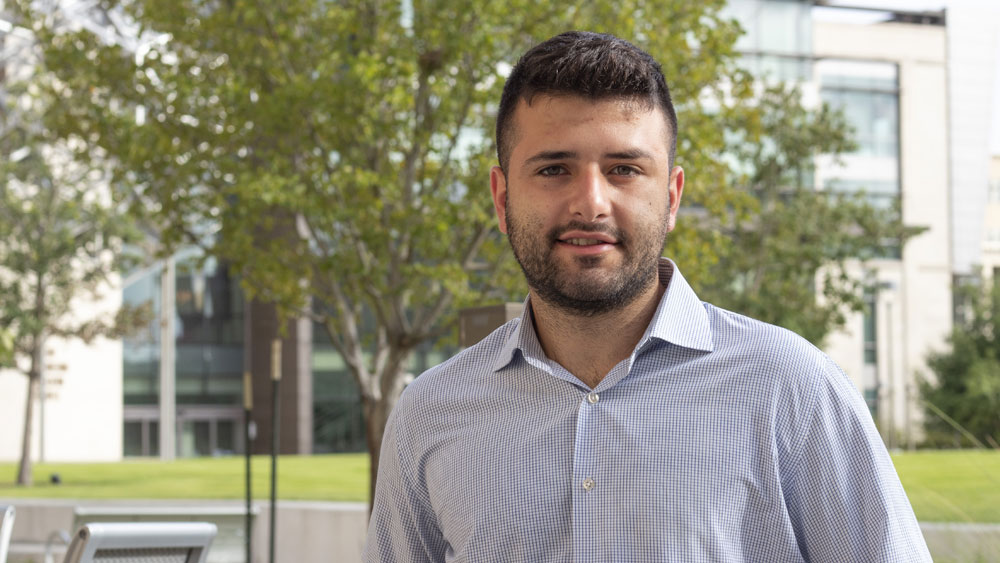
A research and development contest ended in a $100,000 prize for Jerome Sfeir, a doctoral student in the Zachry Department of Civil and Environmental Engineering at Texas A&M University.
Sfeir won first place in the PIVOT 2022 Disruptive Research Competition, receiving 43% of the total votes among five finalists. He was the only student in the final competition.
PIVOT 2022 is a decade-long geothermal energy series of conferences. Per their guidelines, Sfeir submitted details of his research and recorded a video pitch that went through several committee screenings before he became a finalist. His longer detailed pitch was aired during the conference, and the winner was chosen by audience vote on social media.
Sfeir is pursuing a geotechnical engineering degree. His research focuses on geothermal energy, harnessing heat from underground to generate electricity or for direct use such as heating and cooling buildings.
Conventional geothermal systems have three components: high temperature, high permeability (ease of fluid flow in the subsurface) and water. Famous ones include the geysers in California and Iceland.
Enhanced geothermal systems generally involve drilling two wells deep into hot, dry, impermeable rock. The first well is hydraulically fractured to create pathways between the two wells where the second well intercepts the fractures. Cold water pumped down the first well flows through the fractures and comes up in the second well as hot water or steam, achieving almost the same results as a conventional geothermal system but applicable anywhere, thanks to engineering.
“The missing piece of the puzzle is that it needs to financially compete with the other energy sources: solar, wind, oil and gas,” Sfeir said. “Besides economics, geothermal is green, ‘renewable’ and nonclimate dependent compared to other energy sources.”
I say I talk two languages — civil engineering and petroleum engineering — which I think is key for communication in the industry and a much-needed skill for interdisciplinary engineering.
Sfeir received his master’s degree, also in geotechnical engineering, from Texas A&M under the direction of Briaud. He said the degree is a good overlap between his bachelor’s degree in petroleum engineering and his interest in the energy sector.
“I fell in love with the geothermal energy discipline,” he said. “There's a lot of potential in it, and it doesn't make sense to me that there are energy problems in the world, and the solution might be just underneath our feet.”
He met Moridis while taking a PETE 689 special topics course.
“It was on reservoir modeling for nonpetroleum assets, in terms of CO2 sequestration and geothermal systems,” Sfeir said. “It even tackled hydrogen storage. What I learned made me fall more in love with the discipline and prepared me for the competition.”
Both professors encouraged him to enroll in the PIVOT contest, though Sfeir said he wasn’t sure his research was mature enough. The prize money will pay for his education and research needs.
“I say I talk two languages — civil engineering and petroleum engineering — which I think is key for communication in the industry and a much-needed skill for interdisciplinary engineering,” Sfeir said. “I have two co-chairs, two legends in their industries with huge backgrounds in all engineering disciplines. And both work on geothermal energy. I cannot imagine any better scenario for a student like me, and I would like to thank Texas A&M from the bottom of my heart for giving me this opportunity to learn and grow.”